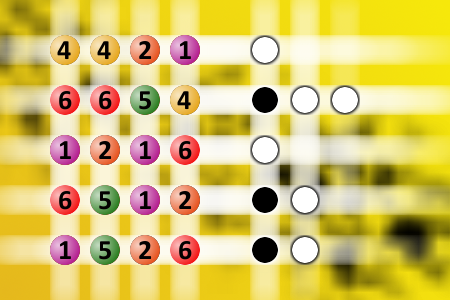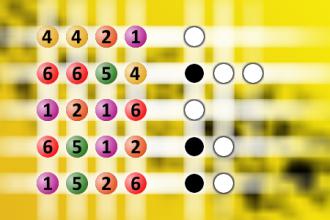Which is a winning combination of digits?
The computer chose a secret code (sequence of 4 digits from 1 to 6). Your goal is to find that code. Black circles indicate the number of hits on the right spot. White circles indicate the number of hits on the wrong spot.Correct answers: 19
The first user who solved this task is Nasrin 24 T.
#brainteasers #mastermind

Carrot, Tomato, and ...
There's a carrot, a tomato, and a penis. The carrot said "I have the worst life of all. I get chopped up, put in a cake, and eaten."
The tomato says "No, I have the worst life of all. I get chopped up, put in a salad, and eaten".
Then the penis said, "I, my friends, have the worst life of all. I get a plastic bag shoved over my head, and then pushed back and forth into a warm tunnel until I choke!".

